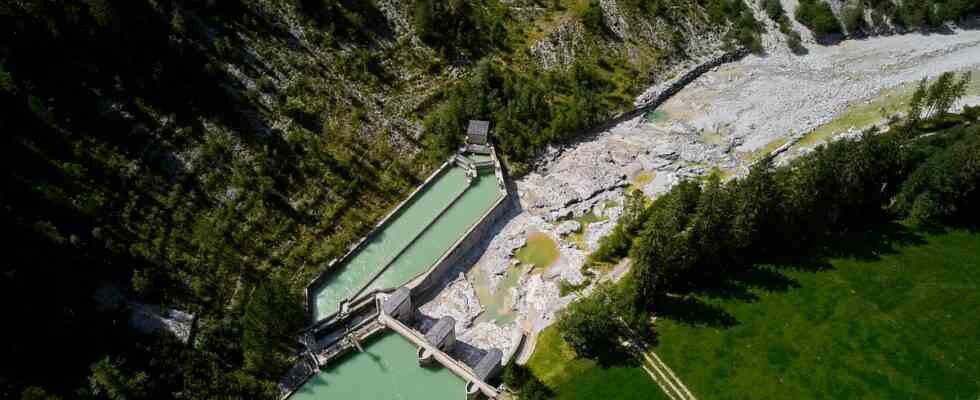If it were purely about the nationalization of the 97 Bavarian Uniper hydroelectric power plants on the Isar, Lech, Danube and Main, politics would have long since achieved its goal. The federal government supported Uniper with more than 30 billion euros last year because its trading business with Russian natural gas has not worked since the attack on Ukraine. Since then, the Federal Republic has held 99 percent of the shares in Uniper and thus also in the power plants. From the point of view of Bavarian politics, there is therefore an opportunity to get the power plants privatized in the 1990s by the CSU-led state government under Prime Minister Edmund Stoiber back into the hands of the Free State. There is broad agreement on this among almost all parties in the state parliament. Nevertheless, the topic got into the mill of the election campaign on Tuesday.
“We stand by our guns, we will enter into such negotiations in Bavaria,” said Bavaria’s Environment Minister Thorsten Faithr in a current hour in the state parliament. Glauber and his Free Voters, like the Greens, had spoken out in favor of nationalizing the former Bavarian works again last summer. “Sometimes there’s just a second chance,” said Glauber on Tuesday. The ball is currently in Berlin.
Federal Minister of Economics Robert Habeck (Greens) only replied to his initiative in October that one had to think about it, and he apparently still does that today, said Glauber. “Tell us about it,” asked Glauber of the Greens and the SPD, who called on the state government to act particularly vehemently and repeatedly pointed out that Stoiber and the CSU had sold Bavarian silverware at the time.
Now there is the opportunity “to correct a CSU mistake of the past in the interests of the future,” said Green parliamentary group leader Ludwig Hartmann, whose party had proposed the topic for the current hour. Hydropower is “the renewable safety energy”, and if the power plants were in the hands of the state, then not only would that keep the financial value added in the country, but it would also facilitate flood protection, low-water management in times of increasing drought and better protection of valuable habitats along the river rivers. Hartmann’s co-chairman Katharina Schulze affirmed that the CSU had delayed, prevented and sold energy policy and made Bavaria particularly dependent on oil and gas. “It’s our water, our energy. The state should make money with it and nobody else.”
However, this goes against the grain of the FDP, for which Albert Duin stepped up to the lectern and was the only MP to clearly oppose the final nationalization of the power plants. It continues to apply “privately to the state”, because the state is “not the better entrepreneur” and already earns a lot, especially from electricity, because 50 percent of the electricity price consists of taxes. Without the FDP and its Federal Finance Minister Christian Lindner, however, it will not be possible to decide on the sale of Uniper as a whole or of individual parts such as the Bavarian power plants even in the traffic light coalition in the federal government.
The CSU lacks facts like the price
According to Alexander Flierl, the CSU lacks the necessary information for a decision anyway: “We need data, facts, we need details, we need reliable knowledge.” Kerstin Schreyer asks questions like “What does it all cost?” and “Can the state do it better than those who are doing it now?” The CSU does not want to be accused of a “serious” or even “historical mistake” by SPD leader Florian von Brunn and the Greens anyway, because the state government has the billions in proceeds from the privatization of Bayernwerk in the 1990s in universities, Stoiber’s high-tech -Offensive and also invested in the Bavarian environmental fund.
The Greens, on the other hand, “never attracted the attention of Schreyer as a promoter of hydropower” – certainly not of the so-called small hydropower, for which the CSU and Free Voters campaigned when the federal government dropped these many, often tiny power plants from the subsidy for renewable energies wanted to leave. From the point of view of many conservationists, the electricity production of these small power plants is far too small in relation to the damage they caused to the ecology of the rivers.
The 97 Uniper power plants play in a different league. Together they account for about a third of the hydroelectric power in Bavaria and produce about five percent of the total electricity produced in Bavaria, which Minister Faithr described “with the output of a medium-sized nuclear power plant”.

